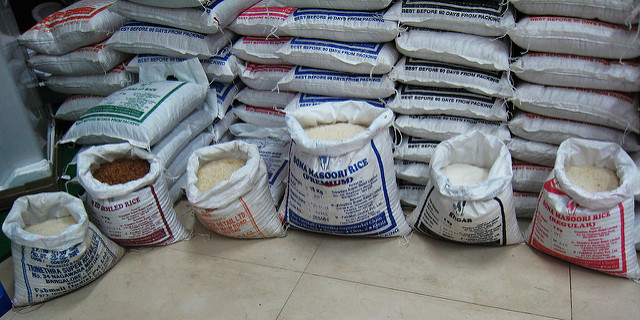News
ASEAN rice reserve available during emergencies

It aims to improve food security without distorting the international rice market. (Photo: Charles Haynes/ Flickr)
MANILA–The Philippines and other member countries of the ASEAN Plus Three Emergency Rice Reserve (APTERR) may now buy rice from the reserve in case of emergency and natural calamities.
National Food Authority (NFA) Administrator Jason Laureano Y. Aquino, who headed the Philippine delegation to the APTERR meeting recently held in Bangkok, Thailand reported that an agreement was reached to implement the Tier 1 program which will allow sales of rice between member countries of APTERR from the earmarked rice reserve during emergencies and calamities.
APTERR was launched in July 2012 composed of the ten ASEAN nations namely Philippines, Thailand, Myanmar, Vietnam, Indonesia, Malaysia, Singapore, Cambodia, Brunei, Laos, plus three non ASEAN members namely Japan, China, and South Korea. Originally established as ASEAN Emergency Rice Reserve (AERR) in 1979, APTERR was organized to ensure rice availability during emergencies, stabilize the price of rice, and improve farmers’ income and welfare among the member countries.
It aims to improve food security without distorting the international rice market.
At present, the total earmarked emergency rice reserve pledged by APTERR member countries is placed at 787,000 MT. The stocks are made available to member countries through a three-tier system: Tier 1 – through sales; Tier 2 – through emergency grants and loans; and Tier 3 – delivery of donated rice in times of acute emergency.
“Rice sales under Tier 1 is different from government-to-government deals because the sale must go through the approval of APTERR as a body and can only be availed of in cases of emergency and calamities,” Aquino said.
The Philippines had already benefited from the AERR/APTERR since 2010 but almost all under Tier 3 program. Thailand donated 520 metric tons of rice to the Philippines through the APTERR Secretariat for victims of Typhoons Ondoy and Juan, La Nina and flash floods. Since the APTERR came into force in 2012, at least 7,200 MT of rice were donated through the program to the Philippines for the victims of typhoons Pablo, Yolanda and Nona.






















Pingback: #Asean Morning News For April 27, 2017